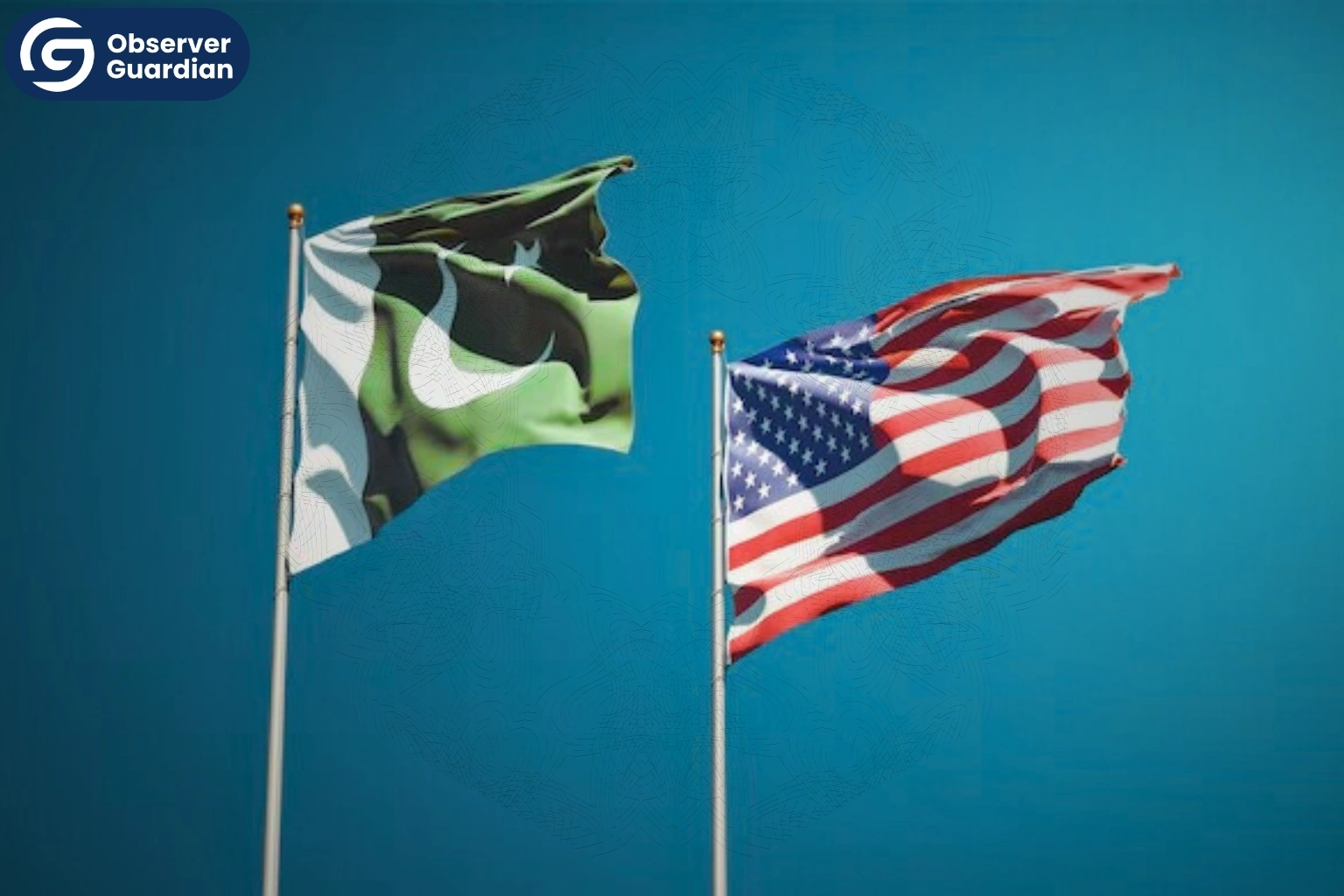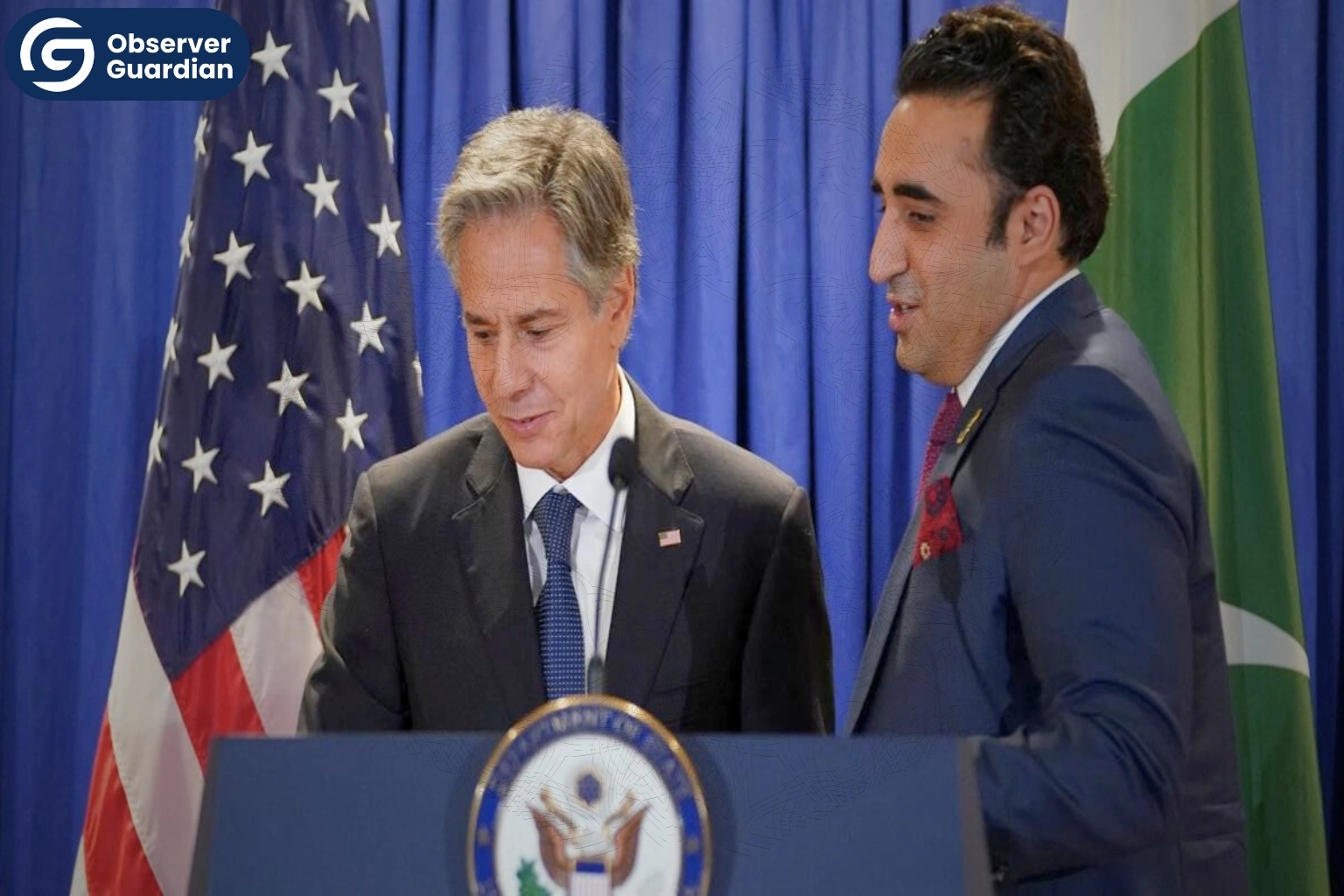If someone has followed American foreign policy over the last two decades, they would have probably noticed how Pakistan slips in and out of Washington’s attention. It becomes a top priority when things go wrong like during the war in Afghanistan or after a major terror attack. But it fades into the background once the immediate crisis passes. However, the truth is that Pakistan’s stability has never stopped being important.
In fact, it matters now more than ever.
Pakistan is not just another country in South Asia. It is a nuclear armed state of more than 240 million people sitting between China, India, Iran, and Afghanistan. That geography alone has a huge influence. So, when Pakistan wobbles, the shockwaves hit every corner of the region, from trade and migration to security and global supply chains. Thus, for the United States, a stable Pakistan helps keep an already volatile neighborhood from spinning out of control.
A Fragile but Strategic Neighborhood of Pakistan
Think about the map for a second. To Pakistan’s east is India, a United States’ partner, and to the north sits China, the United States’ main strategic competitor. Besides, to the west are Iran and Afghanistan, two countries where United States leverage is thin. That makes Pakistan something of a hinge in United States’ regional strategy. Thus, to lose influence there means China would gain it by default.
The nuclear question alone keeps Pakistan relevant. Its arsenal is one of the fastest growing in the world. The United States does not only want to prevent a conflict between India and Pakistan but also tries to make sure those weapons stay secure and never fall into extremist hands. So, even a hint of instability within Pakistan’s military or political system raises alarm bells in Washington.

The Afghanistan Connection
Moving forward, after the US withdrew from Afghanistan, Pakistan’s role became even more complicated. Militants operating along the border, especially the Tehrik-e-Taliban Pakistan (TTP) and the Islamic State-Khorasan (IS-K), have become more active. So, without Pakistan’s cooperation, the United States has limited ability to monitor or disrupt these groups. It does not have nearby bases or on the ground assets anymore.
This is one reason American officials have quietly re-engaged Islamabad. There has been a slow revival in military to military contact, including Chief of Army Staff Mr. Asim Munir’s meeting with President Mr. Trump, and Pakistan’s help in brokering the 2025 Kashmir ceasefire. These gestures might seem small, but they show that Washington sees Pakistan as too important to ignore. Thus, both states do not have to like each other to recognize shared interests.
The Economic Stress of Pakistan and Its Consequences
Moreover, Pakistan’s economy is in rough shape. It is facing inflation and debt crises. However, this is not just Pakistan’s problem. If the country’s economy collapses, it could trigger social unrest, mass migration, and a resurgence of extremist movements. That would create new headaches not just for Pakistan’s neighbors, but for the wider world too.
The United States also has a more direct economic stake. American companies are involved in major projects like Reko Diq, a copper and gold mine in Balochistan with huge potential. Instability in those regions does not just scare off investors, but it threatens key mineral supply chains that the global economy increasingly depends on.
Thus, the United States cannot afford to watch that collapse from the sidelines.
The China Factor
One of the biggest shifts in recent years has been China’s deep investment in Pakistan through the China-Pakistan Economic Corridor (CPEC) which includes roads, ports, and power plants. Beijing has spent billions on building influence and infrastructure. It is part of a broader strategy to secure access to the Indian Ocean and to expand its Belt and Road footprint.
Hence, if the United States walks away, it basically hands over Pakistan to China. That does not mean Pakistan wants to be anyone’s client state. It has been trying to balance both relationships. However, right now Beijing is offering money, projects, and political cover in ways Washington is not doing. If the United States wants to stay relevant, it needs to re-engage, not through lectures or aid packages, but through smart partnerships and trade opportunities that give Pakistan genuine alternatives.
A Partner, not a Pawn
Moreover, it is easy to talk about Pakistan in transactional terms. This means to cooperate on counterterrorism, get military funding, and then move on. But that old model could not build trust, and it did not make Pakistan more stable. Now what would make a difference is a long-term approach that focuses on strengthening Pakistan’s institutions including its schools, courts, and civil service. Resultantly, it would be less vulnerable to extremist or populist pressure.
This kind of engagement does not grab headlines, but it pays off. A Pakistan with stronger institutions is less likely to fall into crisis, less likely to fuel regional tension, and more likely to be a reliable partner in things like trade and counterterrorism.
Keeping Foot in the Door
Furthermore, Washington does not need to go back to the early 2000s level of involvement. But it cannot afford to pull back completely either. Pakistan still provides the most viable access to Afghanistan and Central Asia, areas where the United States has limited presence. Its ports and airspace are valuable, and its cooperation helps keep terrorist networks in check.
Thus, reopening limited military programs or defense financing could help keep that cooperation alive. This is not about arming Pakistan for war, but about maintaining communication, transparency, and professionalism in the security relationship. That is how both sides can prevent misunderstandings and manage crises before they spiral.
Ultimately, Pakistan’s stability matters because the alternative is chaos in one of the world’s most dangerous neighborhoods. A collapse here would not just hurt Pakistan, but it would destabilize South Asia, empower extremists, and widen the space for China and Russia to maneuver. The United States does not have to be Pakistan’s saviour, but it does need to stay present, be patient, and become more realistic.
Nevertheless, Washington has tried walking away before, and every time it does, the region ends up demanding its attention again, usually in worse circumstances. Hence, staying engaged now, even modestly, is a lot cheaper and smarter than trying to pick up the pieces later.
⚠ Disclaimer
The views and opinions expressed in this article are exclusively those of the author and do not reflect the official stance, policies, or perspectives of the Platform.







